Jeremie Averous's Blog, page 57
June 23, 2018
How Creativity Can be Enhanced by Machines
Of course for centuries, creative endeavors have had a renewal every time a new technique appeared. Now with the advent of Artificial Intelligence and machines, artists have another transforming way to be creative. The excellent article ‘The Coming Creativity Explosion Belongs to the Machines‘ gives a broad overview.
 “In a process similar to that followed by a human artist or scientist, a creative machine begins its work by framing a problem. Next, its software specifies the requirements the solution should have before generating “answers” in the form of original designs, patterns, or some other form of output. Although the notion of machine creativity sounds a bit like science fiction, the basic concept is one that has been slowly developing for decades.”
“In a process similar to that followed by a human artist or scientist, a creative machine begins its work by framing a problem. Next, its software specifies the requirements the solution should have before generating “answers” in the form of original designs, patterns, or some other form of output. Although the notion of machine creativity sounds a bit like science fiction, the basic concept is one that has been slowly developing for decades.”
This evolution of course may be found threatening by some. In reality we need to get accustomed to the potential for this support to our work and find ways to deploy machine creativity for our benefit. We need to learn how to harness the power of those machines. I can’t wait to see what will come out of those new creativity techniques!
“I suspect the real world-changing application of machine creativity will be in the realm of everyday problem solving, or Little C. The mainstream emergence of powerful problem-solving tools will help people create abundance where there was once scarcity.“

June 21, 2018
How Artificial Intelligence Transforms the Ad-financed Internet
Following up from our previous post on ‘How the Foundation Principles of Internet May be Flawed‘, the issue with ad-financed internet only came up to the surface with the emergence of powerful Artificial Intelligence. As described in this TED talk ‘We’re building a dystopia just to make people click on ads‘
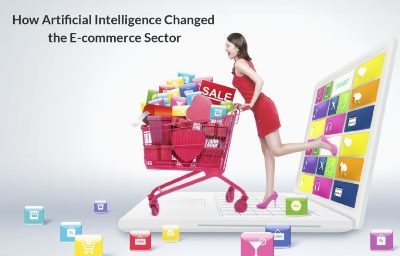 “It may seem like artificial intelligence is just the next thing after online ads. It’s not. It’s a jump in category. It’s a whole different world, and it has great potential. It could accelerate our understanding of many areas of study and research […] And these things only work if there’s an enormous amount of data, so they also encourage deep surveillance on all of us so that the machine learning algorithms can work. That’s why Facebook wants to collect all the data it can about you. The algorithms work better.”
“It may seem like artificial intelligence is just the next thing after online ads. It’s not. It’s a jump in category. It’s a whole different world, and it has great potential. It could accelerate our understanding of many areas of study and research […] And these things only work if there’s an enormous amount of data, so they also encourage deep surveillance on all of us so that the machine learning algorithms can work. That’s why Facebook wants to collect all the data it can about you. The algorithms work better.”
Therefore, it is possible that the rising of AI combined with the ad-financed model is the fundamental reason why the Google and Facebook are excessively collecting data on us. The issue is that this may lead to “building this infrastructure of surveillance authoritarianism merely to get people to click on ads.” It might be time to change the business model of the internet.

June 19, 2018
How the Foundation Principles of Internet May be Flawed
There is an increasing uneasiness on the foundations and principles of internet. In a TED talk, ‘how we need to remake the internet‘, Jason Lanier explains a fundamental mistake was made in the 1990’s: the advertising model to provide internet content for free.
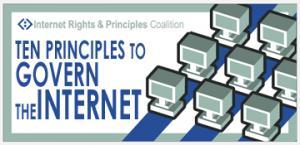 “Early digital culture had a sense of a socialist mission: everything on the internet must be available for free (contrary to books, even if solutions like public libraries compensate to make them available to everyone). At the same time we loved our tech entrepreneurs that could dent the universe. The solution was the advertising model: free with ads. In the beginning it was cute. ”
“Early digital culture had a sense of a socialist mission: everything on the internet must be available for free (contrary to books, even if solutions like public libraries compensate to make them available to everyone). At the same time we loved our tech entrepreneurs that could dent the universe. The solution was the advertising model: free with ads. In the beginning it was cute. ”
The comparison with what happened before is of course not so abrupt, for example newspapers have long relied on ads to finance their activity and therefore could sometimes be opinionated, but everyone knew which side the paper was on.
And as it is proven now, the consequence of the advertisement model is quite incompatible with the principles to govern internet edited under a UN mandate that refer to universality and non-discrimination (refer to those principles here).
As Jason Lanier concludes, “Our species cannot survive in a situation where if 2 people want to communicate they need to go through a third person that wants to manipulate them“.

June 16, 2018
How to Deal With Rejection-Prone Processes
In his post ‘Effort in the face of near-certain rejection‘, Seth Godin shows that there are two fundamental strategies to deal with processes that involve rejection (such as for example, submitting resumes, book drafts, commercial proposals…).
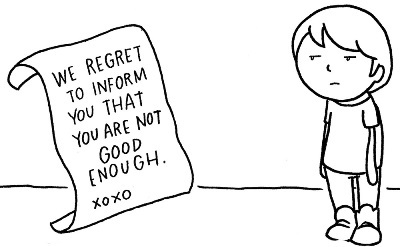 The first approach is statistical: go for volume, there will be some acceptance along the way;
The first approach is statistical: go for volume, there will be some acceptance along the way;the second approach is to invest in the relationships; instead of volume, go for quality and emotional connection.
The second approach is harder, requires emotional work, but probably more effective on the long term. And by using the first approach you are more likely to disrupt people and create bad feelings. Finally it may not take more time to apply the second approach either.
“The thing is, people can tell. And they’re significantly more likely to give you an interview, make a donation, answer your question or do that other thing you’re hoping for if you’ve signalled that you’re actually a caring, focused, generous human.”
So, let’s try to create connections instead of sending our resume or our book draft blindly expecting someone to respond positively!

June 14, 2018
How the topic of Ethics of Big Data and Artificial Intelligence is Growing
As already mentioned in previous posts, I find the excellent book by Cathy O’Neil ‘Weapons of Math Destruction: How Big Data Increases Inequality and Threatens Democracy‘ more and more quoted in many publications. I also noticed that in the last report on AI in France by Cedric Villani, the topic of ethics was given a large place.
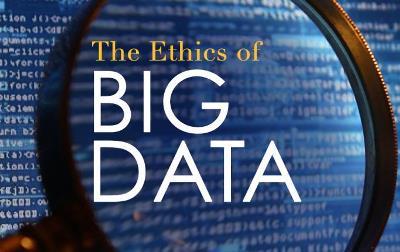 Ethics in Big Data and AI is essential. “Big Data processes codify the past . They do not invent the future . Doing that requires moral imagination , and that’s something only humans can provide . We have to explicitly embed better values into our algorithms , creating Big Data models that follow our ethical lead . Sometimes that will mean putting fairness ahead of profit“.
Ethics in Big Data and AI is essential. “Big Data processes codify the past . They do not invent the future . Doing that requires moral imagination , and that’s something only humans can provide . We have to explicitly embed better values into our algorithms , creating Big Data models that follow our ethical lead . Sometimes that will mean putting fairness ahead of profit“.
Some have complained that ethics has taken too much space in Cedric Villani’s report and that those considerations may make it harder to catch-up in the field of AI. However as recent experience shows, it is also essential not to risk the rejection of new technology because it would not be ethical, leading to crisis and non-acceptance.
Ethics and regulation in Big Data and AI is essential to create a balanced world where everyone will have opportunities. Let’s not avoid the debate and the regulations that will ensue.

June 12, 2018
How the Fourth Revolution Removes the Benefit of Industrial Scale Effect
This interesting paper in MITSloan review ‘The End of Scale‘ addresses the impact of the data revolution on the previous benefits of scale in industrial endeavors. “New technology-driven business models are undercutting the traditional advantages of economies of scale. But large companies still have strengths to exploit — if they move quickly“.
 Industrial economy of scale
Industrial economy of scaleIn the modern world a lot of services that were only available to large organisations are now available to all. Cloud-based applications are the latest, giving access for a modest fee to large technology platforms and services that previously could only be developed by large organisations for themselves. And scale becomes are drawback, as the organisation is much less flexible: “Business in the century ahead will be driven by economies of unscale, in which the traditional competitive advantages of size are turned on their head.”
Large organisations still have huge advantages, and in particular the financial resources that allow them to buy innovation and include them in their ecosystem. Some large organisations move fast to acquire lots of innovative small companies. However, whether their integration will be fruitful remains to be seen.
Anyway, the logic of scale has disappeared and small, innovative companies can make traditional models shake on their foundations.

June 9, 2018
How We Constantly Underestimate the Role of Luck in Our Lives
Another demonstration of the decisive role of luck in our lives is given in this excellent article from the MIT: ‘If you’re so smart, why aren’t you rich? Turns out it’s just chance‘. The initial research question is quite interesting: since capabilities like intelligence are spread according to a normal distribution, and so is work time capability, how come wealth is spread like a power curve?
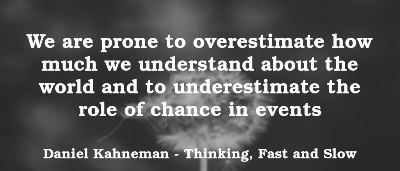 A computer model has been setup that accurately predicts this effect. “The results are something of an eye-opener. Their simulations accurately reproduce the wealth distribution in the real world. But the wealthiest individuals are not the most talented (although they must have a certain level of talent). They are the luckiest. And this has significant implications for the way societies can optimize the returns they get for investments in everything from business to science.”
A computer model has been setup that accurately predicts this effect. “The results are something of an eye-opener. Their simulations accurately reproduce the wealth distribution in the real world. But the wealthiest individuals are not the most talented (although they must have a certain level of talent). They are the luckiest. And this has significant implications for the way societies can optimize the returns they get for investments in everything from business to science.”
The model is then extended to determine what are the best strategies for spreading support for e.g. research funds for researchers. The model shows some counter-intuitive results: since past success is not predictive for future success and mostly caused by luck, spreading funds equally between all is the most effective strategy. But that’s clearly not what happens in life where successful people tend to get more.
Work out to be more lucky!

June 7, 2018
How Our Data is Really the Property and Worth of the Apps We Use: actual demonstration
Recently I was in South East Asia when Grab announced it was buying Uber’s regional business. Immediately Uber shut down, leaving drivers and clients stranded. But the most interesting is that as part of the transaction, Uber transferred to Grab the personal data of its users: history, trips taken, ratings etc. The article ‘Grab acquiring Uber’s data trove is a major red flag. Here’s why‘ explains the issue and why most people don’t care – but should.
 Although users had to manually reset an account with Grab (most people had accounts with the two services anyway), this transfer of data as part of the business transaction reminds us that our personal data belongs to the service we are using and that it is an essential source of worth of those services.
Although users had to manually reset an account with Grab (most people had accounts with the two services anyway), this transfer of data as part of the business transaction reminds us that our personal data belongs to the service we are using and that it is an essential source of worth of those services.
“Uber should be criticised for how it handled its data transfer. The company did not ask users for permission to transfer their data. Even by the low standards of tech companies, Uber didn’t even include a ‘click here to opt-out’ option.” Regulation about the privacy of data should definitely extend to the situation where the service we use is getting acquired.

June 5, 2018
How Posture Can Be Heard Across the Phone
We commonly know that a smile can be heard over the phone, but what about our overall posture? In his post about ‘Mastering the sales call‘, Dom Moorhouse explains how posture is an essential part of the success of a sales call.
 “Your body position and language is really important. […] Stand up and consciously smile going into the call. At the very least sit up straight; put your body into a productive state. Remember sales is primarily a transference of enthusiasm”
“Your body position and language is really important. […] Stand up and consciously smile going into the call. At the very least sit up straight; put your body into a productive state. Remember sales is primarily a transference of enthusiasm”
I find this approach interesting. It combines what we know about presenting of singing in terms of dynamic posture with the fact the effect of our posture may be instinctively heard over the phone.
So next time you have an important phone call, be careful to adopt a dynamic posture, and smile!

June 2, 2018
How to Easily Improve Your Life: Associate with the Right People
Robin Sharma writes something which is continuously demonstrated by more and more studies (specifically on social networks): to improve your life, “associate with people who you want to be and live like“.
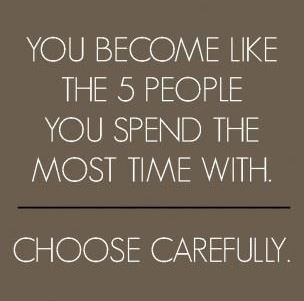 Robin Sharma quotes the work of a Darmouth professor, Nicholas Christakis who writes in his book ‘Connected: The Surprising Power of Our Social Networks and How They Shape Our Lives — How Your Friends’ Friends’ Friends Affect Everything You Feel, Think, and Do‘: “Social networks help us achieve what we could not achieve alone. One biological mechanism that makes behavior contagious may be the so-called mirror neuron system in the human brain. Our brains practice doing actions we merely observe in others.”
Robin Sharma quotes the work of a Darmouth professor, Nicholas Christakis who writes in his book ‘Connected: The Surprising Power of Our Social Networks and How They Shape Our Lives — How Your Friends’ Friends’ Friends Affect Everything You Feel, Think, and Do‘: “Social networks help us achieve what we could not achieve alone. One biological mechanism that makes behavior contagious may be the so-called mirror neuron system in the human brain. Our brains practice doing actions we merely observe in others.”
Associating with people that are what we want to become is the most effective way of changing. What about doing this more consciously?




